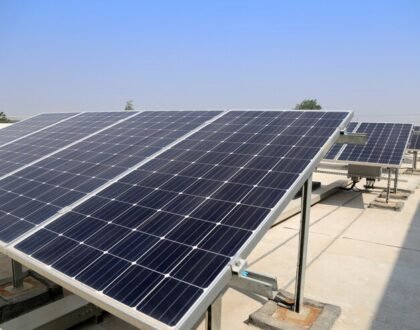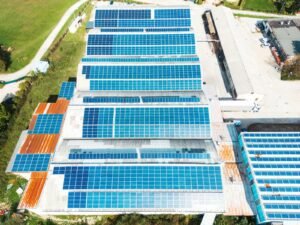Optimizing Your Rooftop Solar Investment: Strategies to Thrive Within Net Metering Caps

Consumers can choose from group net metering, gross metering, or behind-the-meter connection.
Maharashtra has recently implemented significant amendments to its regulations managing the Net metering cap for rooftop solar energy systems through the Maharashtra Electricity Regulatory Commission (Grid Interactive Rooftop Renewable Energy Generating Systems) (First Amendment) Regulations, 2023.
Among the fundamental changes is the expansion of the net metering cap for rooftop solar projects, now raised to 5 MW. The objective of these amendments is to streamline and enhance existing rules. The definition of an “Eligible Consumer” has also been refined, now including those within the jurisdiction of a ‘Distribution Licensee’ aiming to utilize a renewable energy generating system to fulfill their electricity needs.
Gross-net metering
These regulations introduce innovative mechanisms such as gross metering, where the renewable energy generated and consumed is accounted for separately.
Group net-metering
Group Net Metering enables surplus energy to be distributed into multiple connections within the same consumer’s area.
Net-billing arrangements
Net Billing Arrangement involves purchasing surplus energy by the Distribution Licensee, with consumers receiving credit for distributed energy.
Prosumers, retaining consumer status, can choose between single-phase or three-phase Net Meters. The regulations outline a detailed procedure for connecting a renewable energy generating system to the Distribution Licensee’s network.
Financial incentives are introduced, with a provision to pay 50% of collected credits to the consumer after three straight financial years. Payment delays incur simple interest. Grid support charges are waived until rooftop installations reach 5,000 MW. Distribution licensees can seek commission approval for banking charge recovery.
Surplus units distributed into the grid are adjusted against monthly bills. Wheeling charges and losses for surplus energy under Group Net Metering are exempted until rooftop solar capacity reaches 5,000 MW.
The amendments stress the state’s dedication to sustainable energy practices. By introducing mechanisms like gross metering and Group Net Metering, the regulations aim to foster rooftop solar growth while ensuring fair compensation and transparent billing. The emphasis on timely actions and financial compensation adds accountability.
Visol India
Visol India is a leading EPC company in the rooftop solar industry, offering reliable and efficient solutions for commercial rooftop installations in India and industrial rooftop installations in India. With its expertise in the field and commitment to sustainable energy practices, Visol India provides customized and cost-effective solar solutions that help businesses thrive while reducing their carbon footprint. Whether it’s a small-scale installation or a large-scale project, Visol India has the knowledge and experience to deliver the best results for its clients in the commercial and industrial sectors.
India has been seeing a considerable rise in the installation of rooftop solar panels, with both commercial and industrial rooftop installations gaining momentum. While commercial rooftop installations in India are mostly concentrated in urban areas, with the government’s push towards renewable energy, the demand for rooftop solar installations in India is expected to grow further in the coming years.
Recommended Posts

DIY vs. Hiring a Professional Solar Panel Installation Company: Pros, Cons, & Cost Breakdown
14th April 2025

North, South, East, or West? The Best Direction for Solar Panels in India
23rd November 2024




